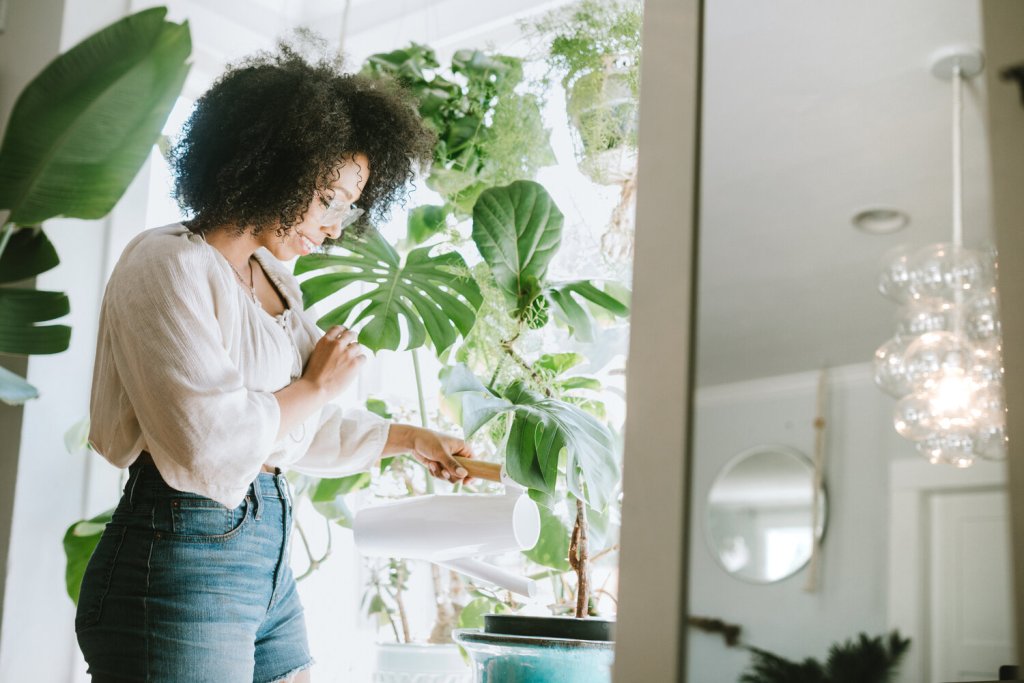Are you an indoor gardener passionate about creating the perfect zen oasis for your plants? You may be surprised to discover that your HVAC system provides the ideal environment for your green friends to thrive.
In this blog post, we will explore the often-overlooked connection between a well-maintained HVAC system and the health of your indoor plants. With the proper maintenance and care, you can create a stable, nurturing environment that helps your plants grow stronger, healthier, and more resilient.
HVAC Systems and Indoor Plants
A well-maintained HVAC system is crucial for creating your perfect Zen Garden indoors. Keeping your indoor plants happy and healthy requires more than just watering and sunlight; it also entails ensuring that your home has a suitable environment for them to thrive. The HVAC system plays a significant role in providing the ideal environment for indoor plants by regulating temperature, humidity, and air quality.
How HVAC systems affect indoor plants
HVAC systems work by heating, cooling, and ventilating the air inside a space, ultimately impacting the overall conditions of your indoor garden. Properly functioning systems provide a stable environment for your plants to grow, while poorly maintained ones can lead to uneven temperatures, fluctuating humidity, and poor air quality. These factors may result in plant stress, wilting, or even death.
Optimal temperature and humidity levels for indoor plants
Different plants have unique preferences when it comes to temperature and humidity levels. However, most indoor plants thrive in temperatures ranging from 65 to 75°F (18 to 24°C) during the day and 60 to 65°F (15 to 18°C) at night. In terms of humidity, the majority of houseplants prefer levels between 40% and 60%. Maintaining these optimal conditions is essential for the overall well-being of your indoor plants, and a well-functioning HVAC system is key to achieving this.
The importance of air filtration for indoor plants
Clean air is just as crucial for your plants as for you. Airborne contaminants, such as dust, mold spores, and allergens, can negatively impact your indoor garden. A well-maintained HVAC system with clean filters can help remove these pollutants, ensuring your plants receive the fresh air they need to grow and flourish.
HVAC Maintenance Tips for Gardeners
Regular filter replacement
To maintain optimal air quality for your indoor plants, replace your HVAC filters regularly. Dirty or clogged filters can restrict airflow, leading to poor air quality and uneven temperatures. Most filters should be replaced every 30 to 90 days, depending on the type of filter and the amount of dust and debris in your home.
Proper cleaning and maintenance of the HVAC system
Keeping your HVAC system clean and well-maintained is crucial for the health of your indoor garden. Check the outdoor unit for debris, such as leaves or grass clippings, and clean the condenser coils if they appear dirty. Inspect the indoor unit for mold or mildew signs and ensure the drainage system functions correctly.
Hiring a professional HVAC technician for maintenance
While you can perform some HVAC maintenance tasks yourself, it’s essential to have a professional heating and air conditioning services company inspect your system at least once a year. These professionals can detect and address potential issues before they escalate into bigger problems. A well-maintained HVAC system will operate more efficiently, providing your indoor plants with the ideal growing environment.
Proper placement of indoor plants near the HVAC system
The location of your indoor plants relative to the HVAC system can impact their health. Avoid placing plants too close to air vents, as the direct airflow may cause drafts and temperature fluctuations. Instead, position your plants where they can receive indirect airflow, ensuring a more consistent environment.
Placement of artificial grass near the HVAC system
Regular filter replacement is critical to maintaining optimal air quality, and proper cleaning of the HVAC system is crucial to avoid potential issues. One solution to minimizing debris and making cleaning around the outdoor unit easier is to install artificial turf. While artificial grass can be an excellent option for minimizing debris and making cleaning easier around the outdoor unit, it’s essential to ensure that the grass does not obstruct the unit or impede airflow.
Proper airflow is crucial for consistent temperatures and healthy air quality, so it’s important to keep the area around the unit clear. By considering these factors, including the proper placement of artificial grass, you can create a functional and attractive outdoor space around your HVAC system.
Benefits of HVAC Maintenance for Indoor Plants
Improved air quality
A well-maintained HVAC system can significantly improve the air quality in your home, providing your indoor plants with the clean air they need to thrive. Plants can absorb nutrients and gases more efficiently by removing airborne contaminants, resulting in healthier growth.
Consistent temperature and humidity levels
Regular HVAC maintenance ensures that your system operates efficiently, providing consistent temperature and humidity levels for your indoor garden. Plants exposed to stable environmental conditions are less likely to experience stress, leading to more robust growth and overall better health.
Reduced risk of pests and diseases
When your HVAC system is properly maintained, it helps maintain optimal conditions for your indoor plants, reducing the risk of pests and diseases. Many pests and diseases thrive in environments with high humidity or stagnant air. Ensuring that your HVAC system effectively manages temperature and humidity can help keep these threats at bay, safeguarding your plants’ health.
Longer lifespan for indoor plants
Proper HVAC maintenance benefits your plants’ immediate well-being and improves their long-term health and longevity. Providing your plants with a stable, clean environment makes them stronger and more resilient. This translates to a longer lifespan for indoor plants, allowing you to enjoy your lush, green oasis for many years.
Conclusion
By investing in regular maintenance, you can ensure optimal air quality, consistent temperature, and humidity levels, reduced risk of pests and diseases, and a longer lifespan for your indoor garden. So, keep your HVAC system in tip-top shape, and watch your indoor plants flourish.

